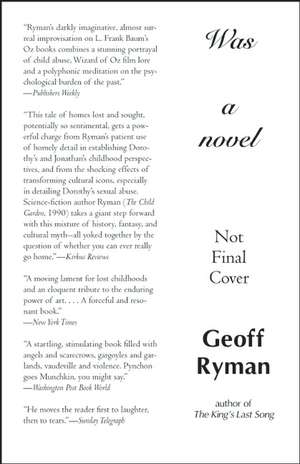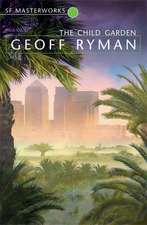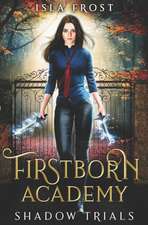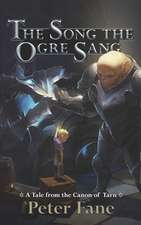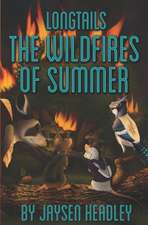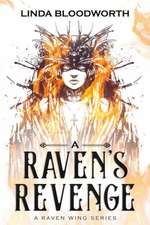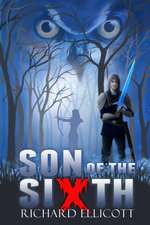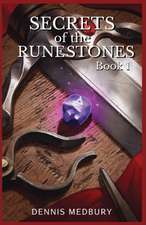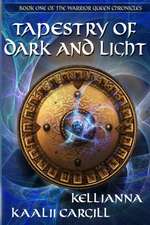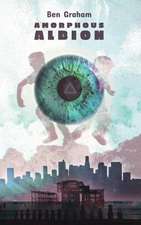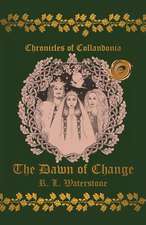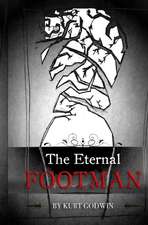Was
Autor Geoff Rymanen Limba Engleză Paperback – 10 aug 2015
Vezi toate premiile Carte premiată
Spectrum Awards (2002)
"A moving lament for lost childhoods and an eloquent tribute to the enduring power of art."—The New York Times
A haunting novel exploring the lives of characters intertwined with The Wizard of Oz: the "real" Dorothy Gale; Judy Garland's unhappy fame; and Jonathan, a dying actor, and his therapist, whose work at an asylum unwittingly intersects with the Yellow Brick Road.
Geoff Ryman is the author of The King's Last Song, Air, The Child Garden, The Unconquered Country, and Paradise Tales. He has lived in Cambodia and Brazil, and now teaches at the University of Manchester, England.
| Toate formatele și edițiile | Preț | Express |
|---|---|---|
| Paperback (2) | 89.10 lei 6-8 săpt. | |
| Small Beer Press – 10 aug 2015 | 96.53 lei 3-5 săpt. | |
| Orion Publishing Group – dec 2007 | 89.10 lei 6-8 săpt. |
Preț: 96.53 lei
Nou
Puncte Express: 145
Preț estimativ în valută:
18.47€ • 19.29$ • 15.25£
18.47€ • 19.29$ • 15.25£
Carte disponibilă
Livrare economică 25 martie-08 aprilie
Preluare comenzi: 021 569.72.76
Specificații
ISBN-13: 9781931520737
ISBN-10: 1931520739
Pagini: 384
Dimensiuni: 137 x 213 x 25 mm
Greutate: 0.45 kg
Ediția:Anniversary
Editura: Small Beer Press
ISBN-10: 1931520739
Pagini: 384
Dimensiuni: 137 x 213 x 25 mm
Greutate: 0.45 kg
Ediția:Anniversary
Editura: Small Beer Press
Recenzii
“A startling, stimulating book filled with angels and scarecrows, gargoyles and garlands, vaudeville and violence. Pynchon goes Munchkin, you might say.”
—Washington Post Book World
"The Scarecrow of Oz dying of AIDS in Santa Monica? Uncle Henry a child abuser? Dorothy, grown old and crazy, wearing out her last days in a Kansas nursing home? It's all here, in this magically revisionist fantasy on the themes from The Wizard of Oz."
—Kirkus Reviews
"Ryman's darkly imaginative, almost surreal improvisation on L. Frank Baum's Oz books combines a stunning portrayal of child abuse, Wizard of Oz film lore and a polyphonic meditation on the psychological burden of the past."
—Publishers Weekly
"A mediation on art, lies and human pain. None of Ryman's books is quite like any of the others—this is one of his most straightforward and best"
—Roz Kaveneny, Time Out
Extras
Was, an excerpt:
PART ONE: THE WINTER KITCHEN
MANHATTAN, KANSAS
SEPTEMBER 1989
During the spring and summer I sometimes visited the small Norwegian Cemetery on a high hill overlooking a long view of the lower Republican Valley. In late evening a cool breeze always stirs the two pine trees which shade a few plots. Just south of the Cemetery in a little ravine is a small pond surrounded with a few acres of unbroken prairies sod. On the rise beyond the ravine a few large trees grow around a field. They are the only markers of the original site of my Grandfather's homestead.
My Grandmother once told me that when she stood on the hill and looked southwest all she could see was prairie grass. An aunt told me of walking over the hills to a Post Office on the creek there. I can remember when a house stood just across the field to the west and now I can still see an old tree and a lonely lilac bush on the next hill where a few years ago a house and farm building stood. Of the ten houses I could see from this hill when I was a child, now only two exist - but instead of the waving prairie grass which Grandmother saw in the 1870s, there are rectangles and squares of growing crops and trees along the roads. A few miles distant the dark green of trees, with a water tower, tall elevator and an alfalfa mill rising above them define the area of a small town.
—Elinor Anderson Elliott,
The Metamorphosis of the Family Farm in the Republican Valley of Kansas: 1860-1960,
MA thesis, Kansas State University
The Municipal airport of Manhattan, Kansas, was low and brown and rectangular, and had a doorway that led direct from the runway. The last passenger from St. Louis staggered through it, his cheek bristly, his feet crossing in front of each other as he walked. He blinked at the rows of chairs and Pepsi machines and then made his way to the Hertz desk. He gave his name.
"Jonathan," he said, in a faraway voice. Jonathan forgot to give his last name. He was enchanted by the man at the Hertz desk, who was long, lean, solemn, wearing wire glasses. He reminded Jonathan of the farmer in the painting American Gothic. Jonathan grinned.
He passed the man an airport napkin with a confirmation number written on it. American Gothic spoke of insurance and had forms ready to sign. Jonathan put check marks in the little boxes and passed over a credit card. He waited, trying not to think about how ill he was. He looked at a map on the wall.
The map showed Manhattan the town and, to the west of it, Fort Riley, the Army base. Fort Riley covered many miles. It had taken over whole towns.
Jonathan did not know there had once been a town in Kansas called Magic. There had even been a Church of Magic, until the congregation had to move when the Army base took over. The ghost towns were marked. Fort Riley DZ. DZ Milford. The letters D were ambiguously rounded.
Quite plainly on the map, there was something that Jonathan read as "OZ Magic."
It had its own little box, hard by something called the Artillery and Mortar Inpact Area, quite close to a village called Keats.
"There you go," said American Gothic. He held out car keys.
"What's this mean?" Jonathan asked, pointing at the words.
"DZ?" the man said. "It means 'Drop Zone.'"
There were little things on the map called silos. Jonathan thought the silos might be for storing sorghum.
"At the end of the world," said the man at the Hertz desk, "it will rain fire from the sky." He still held out the car keys. "Manhattan won't know jack shit about it. We'll just go up in a flash of light."
Not a single thing he had said made any sense to Jonathan. Jonathan just stared at the map.
"Anyway," said American Gothic, "you got the gray Chevrolet Celebrity outside."
Jonathan thought of Bob Hope. He swayed where he stood. Sweat trickled into his mouth.
"You all right?" the man asked.
"I'm dying," said Jonathan, smiling. "But aside from that I'm pretty good, I guess." It was an innocent statement of fact.
Too innocent. Ooops, thought Jonathan. Now he won't rent me a car.
But this was Kansas, not Los Angeles. The man went very still for a moment, then said quietly, "You need a hand with your luggage?"
"Don't have any," said Jonathan, smiling almost helplessly at the man, as if he regretted turning him down.
"You from around here? Your face looks kinda familiar."
"I'm an actor," Jonathan replied. "You may have seen me. I played a priest in 'Dynasty.'"
"Well, I'll be," said American Gothic. "What are you doing here, then?"
It was a long story. "Well," said Jonathan, already imitating the other man's manner. "I suppose you could say I'm here to find somebody."
"Oh. Some kind of detective work." There was a glint of curiosity, and a glint of hostility.
"Something like detective work," agreed Jonathan, and smiled. "It's called history." He took the keys and walked.
MANHATTAN, KANSAS
SEPTEMBER 1875
After the Kansas were placed on the greatly reduced reservation near Council Grove, a substantial decline occurred. For example, in 1855—the year their agent described them as "a poor, degraded, superstitious, thievish, indigent" type of people—the Commissioner of Indian Affairs reported their number at 1,375. By 1859 it was down to 1,035 and in 1868 to 825. Finally, while this "improvident class of people" made plans for permanent removal to Indian Territory, an official Indian Bureau count placed their number at "about 600." Clearly the long-range trend appeared to be one of eventual obliteration.
—William E. Unrau,
The Kansa Indians: A History of the Wind People, 1673-1873
The brakeman danced along the roofs of the train cars, turning brake-wheels. The cars squealed and hissed and bumped their way to a slowly settling halt. he train chuffed once as if in relief.There was a dog barking. The noise came from within the train, as regular as the beating of its steam-driven heart. The dog was hoarse.
The door of a car was flung open, pushed by a boot, and it crashed against the side of the train. A woman all in black with a hat at an awkward angle was dragging a large trunk case. A little girl all in white stood next to her. The white dress sparkled in sunlight, as if it had been sprinkled with mirrors. The dog still barked.
"Where's my doggy? We're going to leave my doggy!" said the child.
"Your doggy will be along presently. Now you just help yourself down those steps." The woman had a thin, intelligent face. Her patience was worn. She took the child's hand and leaned out of the car. The child dangled, twisting in her grasp. A huge sack was thrown out of the next car and onto the platform like a dead body.
"Aaah!" cried the child, grizzling.
"Little girl, please. Use your feet."
"I can't!" wailed the child.
The woman looked around the platform. "Johnson!" she called. "Johnson Langrishe, is that you? Could you come over here please and help this little girl down from the train?"
A plump and very pimply youth - his cheeks were almost solid purple - loped toward the train, hair hanging in his eyes under a Union Pacific cap. The woman passed the child down to him. Johnson took her with a grunt and dropped her just a little too soon onto the platform.
The train whistled. The dog kept barking.
"Dog's been making music since Topeka. It's a wonder he's got any voice left. Trunk next." The woman pushed the trunk out the door. Johnson was not strong enough to hold it, and it slipped from his grasp to the ground.
"My doggy," said the little girl.
"Dot rat your doggy," muttered the woman. "Johnson. Do you know Emma Gulch? Emma Branscomb as was?"
"No, Ma'am."
"Well that's just dandy," said the woman with an air of finality.
"There's no one here? There's no one here?" The little girl began to panic.
"No, little girl, I'm afraid not. I'm going o Junction, otherwise I'd stop off with you. Why? Why let a little girl come all this way and not meet her, I just do not know!" The woman turned and shouted at the next car.
"Hank," she cried. "Hank, for goodness' sake! Fetch the little girl her dog, can't you?"
"He bit me!" shouted the porter.
The woman finally chickled. "Oh, Lord!" She turned and disappeared into the next car.
The train sneezed twice and a white cloud rolled up donut-shaped from the funnel. Great metal arms began to stroke the wheels almost lovingly. And the wheels began to turn. A creak and a slam and a rolling noise and the train began to sidle away. It whistled again, and the shriek of the whistle smothered the cry the little girl made for her dog.
Then out of the mailcar door, the woman appeared, holding out a furious gray bundle. It wrenched itself from her grasp and rolled out onto the platform. It somersaulted into the child and then spun and righted itself, yelping in outrage. It roared hatred at the train and the people on it. The dog consigned the train to Hell. Johnson, the boy, backed away from him.
Sunset orange blazed on the side of the car. The woman still hung out of the doorway.
"Emma Gulch is her aunt! Lives east out in Zeandale!" she shouted. "Try to get word to her. God bless, child!" the woman waved with one hand and held on to her hat with the other. The air above the train shivered with heat. There was a wuffling sound of fire, and a clapping and clanking, and the brakeman did his dance. All of it moved like a show, farther down the track, fading like the light. The light was low and golden.
This was the time of the afternoon the little girl most hated. This was the time she felt most alone.
"What's your name?" Johnson asked her.
"Dorothy," said the little girl. She held up her white dress to make it sparkle. "What's that stuff on your dress?"
"It's a theater dress," said the little girl. Her eyes stared and her mouth was puffy. "The theater people in Kansas City gave it to me." She had stayed with them last night, and she liked them. "Are you going to stay with me?" she asked Johnson.
"For a little while, maybe."
PART ONE: THE WINTER KITCHEN
MANHATTAN, KANSAS
SEPTEMBER 1989
During the spring and summer I sometimes visited the small Norwegian Cemetery on a high hill overlooking a long view of the lower Republican Valley. In late evening a cool breeze always stirs the two pine trees which shade a few plots. Just south of the Cemetery in a little ravine is a small pond surrounded with a few acres of unbroken prairies sod. On the rise beyond the ravine a few large trees grow around a field. They are the only markers of the original site of my Grandfather's homestead.
My Grandmother once told me that when she stood on the hill and looked southwest all she could see was prairie grass. An aunt told me of walking over the hills to a Post Office on the creek there. I can remember when a house stood just across the field to the west and now I can still see an old tree and a lonely lilac bush on the next hill where a few years ago a house and farm building stood. Of the ten houses I could see from this hill when I was a child, now only two exist - but instead of the waving prairie grass which Grandmother saw in the 1870s, there are rectangles and squares of growing crops and trees along the roads. A few miles distant the dark green of trees, with a water tower, tall elevator and an alfalfa mill rising above them define the area of a small town.
—Elinor Anderson Elliott,
The Metamorphosis of the Family Farm in the Republican Valley of Kansas: 1860-1960,
MA thesis, Kansas State University
The Municipal airport of Manhattan, Kansas, was low and brown and rectangular, and had a doorway that led direct from the runway. The last passenger from St. Louis staggered through it, his cheek bristly, his feet crossing in front of each other as he walked. He blinked at the rows of chairs and Pepsi machines and then made his way to the Hertz desk. He gave his name.
"Jonathan," he said, in a faraway voice. Jonathan forgot to give his last name. He was enchanted by the man at the Hertz desk, who was long, lean, solemn, wearing wire glasses. He reminded Jonathan of the farmer in the painting American Gothic. Jonathan grinned.
He passed the man an airport napkin with a confirmation number written on it. American Gothic spoke of insurance and had forms ready to sign. Jonathan put check marks in the little boxes and passed over a credit card. He waited, trying not to think about how ill he was. He looked at a map on the wall.
The map showed Manhattan the town and, to the west of it, Fort Riley, the Army base. Fort Riley covered many miles. It had taken over whole towns.
Jonathan did not know there had once been a town in Kansas called Magic. There had even been a Church of Magic, until the congregation had to move when the Army base took over. The ghost towns were marked. Fort Riley DZ. DZ Milford. The letters D were ambiguously rounded.
Quite plainly on the map, there was something that Jonathan read as "OZ Magic."
It had its own little box, hard by something called the Artillery and Mortar Inpact Area, quite close to a village called Keats.
"There you go," said American Gothic. He held out car keys.
"What's this mean?" Jonathan asked, pointing at the words.
"DZ?" the man said. "It means 'Drop Zone.'"
There were little things on the map called silos. Jonathan thought the silos might be for storing sorghum.
"At the end of the world," said the man at the Hertz desk, "it will rain fire from the sky." He still held out the car keys. "Manhattan won't know jack shit about it. We'll just go up in a flash of light."
Not a single thing he had said made any sense to Jonathan. Jonathan just stared at the map.
"Anyway," said American Gothic, "you got the gray Chevrolet Celebrity outside."
Jonathan thought of Bob Hope. He swayed where he stood. Sweat trickled into his mouth.
"You all right?" the man asked.
"I'm dying," said Jonathan, smiling. "But aside from that I'm pretty good, I guess." It was an innocent statement of fact.
Too innocent. Ooops, thought Jonathan. Now he won't rent me a car.
But this was Kansas, not Los Angeles. The man went very still for a moment, then said quietly, "You need a hand with your luggage?"
"Don't have any," said Jonathan, smiling almost helplessly at the man, as if he regretted turning him down.
"You from around here? Your face looks kinda familiar."
"I'm an actor," Jonathan replied. "You may have seen me. I played a priest in 'Dynasty.'"
"Well, I'll be," said American Gothic. "What are you doing here, then?"
It was a long story. "Well," said Jonathan, already imitating the other man's manner. "I suppose you could say I'm here to find somebody."
"Oh. Some kind of detective work." There was a glint of curiosity, and a glint of hostility.
"Something like detective work," agreed Jonathan, and smiled. "It's called history." He took the keys and walked.
MANHATTAN, KANSAS
SEPTEMBER 1875
After the Kansas were placed on the greatly reduced reservation near Council Grove, a substantial decline occurred. For example, in 1855—the year their agent described them as "a poor, degraded, superstitious, thievish, indigent" type of people—the Commissioner of Indian Affairs reported their number at 1,375. By 1859 it was down to 1,035 and in 1868 to 825. Finally, while this "improvident class of people" made plans for permanent removal to Indian Territory, an official Indian Bureau count placed their number at "about 600." Clearly the long-range trend appeared to be one of eventual obliteration.
—William E. Unrau,
The Kansa Indians: A History of the Wind People, 1673-1873
The brakeman danced along the roofs of the train cars, turning brake-wheels. The cars squealed and hissed and bumped their way to a slowly settling halt. he train chuffed once as if in relief.There was a dog barking. The noise came from within the train, as regular as the beating of its steam-driven heart. The dog was hoarse.
The door of a car was flung open, pushed by a boot, and it crashed against the side of the train. A woman all in black with a hat at an awkward angle was dragging a large trunk case. A little girl all in white stood next to her. The white dress sparkled in sunlight, as if it had been sprinkled with mirrors. The dog still barked.
"Where's my doggy? We're going to leave my doggy!" said the child.
"Your doggy will be along presently. Now you just help yourself down those steps." The woman had a thin, intelligent face. Her patience was worn. She took the child's hand and leaned out of the car. The child dangled, twisting in her grasp. A huge sack was thrown out of the next car and onto the platform like a dead body.
"Aaah!" cried the child, grizzling.
"Little girl, please. Use your feet."
"I can't!" wailed the child.
The woman looked around the platform. "Johnson!" she called. "Johnson Langrishe, is that you? Could you come over here please and help this little girl down from the train?"
A plump and very pimply youth - his cheeks were almost solid purple - loped toward the train, hair hanging in his eyes under a Union Pacific cap. The woman passed the child down to him. Johnson took her with a grunt and dropped her just a little too soon onto the platform.
The train whistled. The dog kept barking.
"Dog's been making music since Topeka. It's a wonder he's got any voice left. Trunk next." The woman pushed the trunk out the door. Johnson was not strong enough to hold it, and it slipped from his grasp to the ground.
"My doggy," said the little girl.
"Dot rat your doggy," muttered the woman. "Johnson. Do you know Emma Gulch? Emma Branscomb as was?"
"No, Ma'am."
"Well that's just dandy," said the woman with an air of finality.
"There's no one here? There's no one here?" The little girl began to panic.
"No, little girl, I'm afraid not. I'm going o Junction, otherwise I'd stop off with you. Why? Why let a little girl come all this way and not meet her, I just do not know!" The woman turned and shouted at the next car.
"Hank," she cried. "Hank, for goodness' sake! Fetch the little girl her dog, can't you?"
"He bit me!" shouted the porter.
The woman finally chickled. "Oh, Lord!" She turned and disappeared into the next car.
The train sneezed twice and a white cloud rolled up donut-shaped from the funnel. Great metal arms began to stroke the wheels almost lovingly. And the wheels began to turn. A creak and a slam and a rolling noise and the train began to sidle away. It whistled again, and the shriek of the whistle smothered the cry the little girl made for her dog.
Then out of the mailcar door, the woman appeared, holding out a furious gray bundle. It wrenched itself from her grasp and rolled out onto the platform. It somersaulted into the child and then spun and righted itself, yelping in outrage. It roared hatred at the train and the people on it. The dog consigned the train to Hell. Johnson, the boy, backed away from him.
Sunset orange blazed on the side of the car. The woman still hung out of the doorway.
"Emma Gulch is her aunt! Lives east out in Zeandale!" she shouted. "Try to get word to her. God bless, child!" the woman waved with one hand and held on to her hat with the other. The air above the train shivered with heat. There was a wuffling sound of fire, and a clapping and clanking, and the brakeman did his dance. All of it moved like a show, farther down the track, fading like the light. The light was low and golden.
This was the time of the afternoon the little girl most hated. This was the time she felt most alone.
"What's your name?" Johnson asked her.
"Dorothy," said the little girl. She held up her white dress to make it sparkle. "What's that stuff on your dress?"
"It's a theater dress," said the little girl. Her eyes stared and her mouth was puffy. "The theater people in Kansas City gave it to me." She had stayed with them last night, and she liked them. "Are you going to stay with me?" she asked Johnson.
"For a little while, maybe."
Descriere
Dotty, old and maybe crazy, sees The Wizard of Oz on TV, and recognizes it as her own story.
Premii
- Spectrum Awards Winner, 2002
